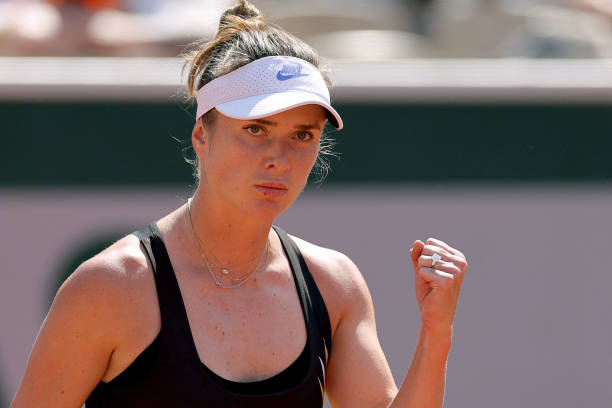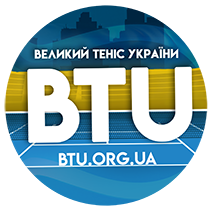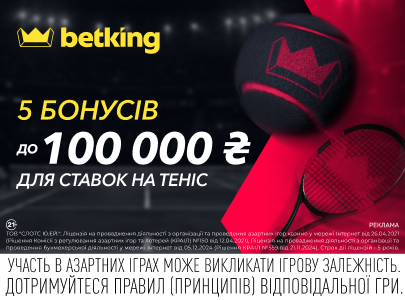|
Tennis News –
The most titled Ukrainian tennis player talked to the press after her first-round win against Martina Trevisan at Roland GarrosElina Svitolina invites tennis “to not miss the main point” amid the handshake fuss: We focus on empty words, while Ukraine’s children are losing their parents, women – their husbands - Elina, a great win today, and you're in great form after your title in Strasbourg. Just how excited are you to be back playing Grand Slam tennis? - Yeah, super excited about the win and the comeback, of course. Couldn't be better prepared for the Grand Slam after winning in Strasbourg. Played great tennis. Yeah, of course today's match was great from my side. Played really solid, and got a good, confident win. - Do you feel like a different player coming back to when you left a year ago? Is there anything in particular maybe that you're doing differently now, or does it feel like kind of you were never away? - Well, everything is pretty different. First, I have different team right now. I'm a mom right now. So there's few things different, and it feels different as well. You know, I'm not a top-10 or top-20 player now. I'm outside of 100, so I'm like top 200 now I think after Strasbourg. Also, less pressure, I would say, because right now I'm just gaining, gaining points, and coming back to the level, coming back to the tour. So everything is kind of old and new for me right now (smiling). Mixture of different feelings, but right now, you know, just want to enjoy each opportunity at each tournament that I get. Just play good tennis. Try to enjoy out there, and then, you know, see how it goes. - Was the plan always to come back? Was there ever a moment when you considered not coming back or you thought that you might not want to? - It was always in my head the plan to come back, but I didn't put any pressure on myself, because obviously with the war going on, with the pregnancy, you never know how, you know, complicated it will go. So I just decided, you know, I'm just gonna let it go and then see how's it gonna be, how I'm gonna feel after three months postpregnancy. In the end, everything went well. I was very motivated. In January I started playing, like not playing but coming back to fitness, to tennis 2nd of January. Yeah, everything went well, and I was rested. I was motivated and ready to work and make the comeback. - I wanted to ask you physically how you feel now as compared to, you know, prepregnancy days and when you were right at the top of your game, just physically. - You mean pre-, like prepregnancy, you mean? - Yes. Compared to now. - Well, obviously you feel awful when you're pregnant. Especially last months. - No, sorry, I meant... - You mean before. Yeah, exactly, before that. Actually, I feel great right now. I feel like I'm in a good form physically. I worked hard in the gym and with my team as well to be -- this was the focus for me, to be physically really fit. I feel like I'm as strong as I was before, maybe even stronger, because I feel that I can handle the work that I do off the court, and match by match I'm getting better. Also mentally, because mental can influence your physicality, as well. You know, these parts, I tried to find the balance, and I feel like, you know, I'm seeing a little bit again differently as well after the break. You know, everything is getting there, you know, like the puzzles are getting slowly into place. You know, we can see the result, that I'm playing well, and the most importantly I'm happy with the level that I show right now. That's what I want to build on this. - You have a very busy life right now. You have your family commitments. We know about the war in Ukraine, which is affecting you and everyone you know. And you're also a professional sportsperson as well. Can you chat to us about why you decided to come back right now. Is it for yourself, or is it for a wider and a bigger picture? - Well, there is a few points that motivated me to come back. I already knew when I was pregnant that I would come back, because I want to do it for myself. I have some goals that I want to complete before I retired completely. Of course, you know, for my country, as well, to bring these little moments like, for example, winning Strasbourg, starting well here, as well. You know, these kind of moments, these little wins, you know, on the level, you know, which is very low, but, you know, these moments bring joy to people of Ukraine, to the kids as well, the kids who loved to play tennis before the war and now maybe they don't have the opportunity. But these moments that, you know, that can motivate them to look on the bright side and, you know, see these good moments and enjoy themself as much as they can in this horrible situation. - After obviously playing so many big matches in your career and winning big titles, what was it like to go play in ITF events in what almost seems like starting again? What was that like? Also, do you feel like a more attacking player now? As you said, you're playing with less pressure, I guess. - It was good. I don't see any problem with going to play ITF tournaments, because my ranking was zero at that time, so why not to go and play like some smaller events. You need to go through this kind of experience, because when you have no ranking, you have to play them. When I started, when I was 16 years old, I played these kind of tournaments. I won 10,000, 15, 70,000. These tournaments are there to pick up your level, you know, to see where are you with your level at the moment. Yeah, in the way, they helped me to feel my level and improve, and the practice as well. - Could you maybe tell something about your coach, Raemon Sluiter. I'm from The Netherlands, Dutch TV. I'm really interested. Could you tell something about why you approached him and what are your experience so far with him. - Yeah, I'm really happy with the way that we click together. Also, we had this opportunity to work like three months, or it was three-and-a-half months together without the tournaments. Because normally when you are on the tour and you switch coach, you don't have this time to adjust. You are pretty much practicing couple of weeks or offseason it's one month, and then you're straight into the fire, I would say, of the tournaments and straightaway into Australia Grand Slam. So, you know, you don't really have this time to really adjust yourself, to learn more about each other. We had this time after, you know, I gave birth, I slowly started to recover, and contacted Raemon. I knew him from before from Kiki Bertens, and they did amazing job together and worked together for a long time. So we crossed like practice a couple of times with Kiki and start to know Raemon a little bit more. I just wanted to give it a shot. And everything went well at the beginning, and we had time, as I mentioned, to adjust to each other, and, you know, calmly speak and see what I have to improve, what I have to do to come back to the decent level. - You have come back to the tour at a time when the war has changed everything, including tennis. What is your assessment of what you have found on this tour, of the experience of the Ukrainian women? I would imagine you have read about everything that happened yesterday between Marta and Aryna. Do you feel an obligation to behave a certain way, to say certain things, to behave a certain way towards other players? What is that experience like for you? What do you expect it to be like? What do you want it to be like? - Well, what I found, that a lot of, I don't know in a nicer way to say, but a lot of rubbish is happening around the situation where we have to focus on what the main point of what is going on, of a lot of people, Ukrainian people, need help and need support. We are focusing on so many, you know, things like empty words, empty things that are not helping the situation, not helping anything. So right now my focus, and I want to invite everyone to focus on helping Ukrainians. That's the main point of this, you know, to help kids, to help women who lost their husbands because they are at the war and they are fighting for Ukraine. We are missing the main point that people now at this time, they need help as never before. The kids, you know, they're losing their parents, they're losing parts of their body. You know, there is so many things that we can do and help in different ways. You can donate couple of dollars might help and save live. Or donate your time to something to help people. You know, we are missing the main point of all of that and talking, talking, talking about nothing. Well, here, empty, completely empty words. Not helping. - You said you're donating your winnings from Strasbourg to help Ukrainian children. I'm wondering if you can say specifically what projects they are, and are you donating winnings from Roland Garros? - After Strasbourg, yes, I'm donating this money to the kids of Ukraine. We will see what exact way it's gonna go. Like, for example, we had a fund-raising event in States that was joined together with Lesia Tsurenko. We donated that money to the school that was in Kharkiv that was damaged completely, for the school for the kids who has disabilities, so to restore that school. And this prize money I will see what are the possibilities and what are the needs of the cities. Like, for example, in Odessa, my hometown, or in Kharkiv, or maybe in Kyiv, so we will see what are the needs, like urgent needs, and then I'll donate this money there. Also, with my foundation, we are doing some health programs, mental health programs for the kids. So partly maybe will go also to this. So there is, you know, there is paths that we might take but we will see what are the urgent needs right now. - Do you think that you have changed personally since becoming a wife and a mother and all that's gone on in the last year? If so, how have you changed? Has also been the experiences of meeting high-profile politicians and things like that, and you're using your voice, if you could maybe address that and explain how things may have changed in yourself. - Yeah, firstly, I changed. I think war changed me in so many ways. I think I treasure more my family, my time with my family, my time just on a daily basis. You know, I really try to understand that how lucky I am to be where I am and to have a voice, as well. Also too, you know, to play on such a big events, to have opportunity to play such big events, to motivate young kids of Ukraine, to have this opportunity. So in so many ways, I'm just grateful that my life turned like that, so that's why right now I just want to give this little part to the people who need it the most right now. So, yeah, just want to do something in return. |














3/02/26 12:45 ivoloshka написал
І на додачу - хай і не блискуча, але ПЕРЕМОГА над вищою за рейтингом суперницею! Не тільки словом, а й ділом! Знай наших! Слава Україні! |

3/02/26 04:57 Vladyslav Diumin написал
Яка ж вона позитивна та відкрита! Круто, що у нас є така чудова тенісистка! Бажаю багато перемог на рівні WTA та професійного розвитку!
|

30/01/26 13:46 Vladyslav Diumin написал
Молодець Еліна! Так трошки не вистачило перемогти, але це був матч проти першої ракетки світу тому нічого страшного тут нема. Вважаю що це AO був для Еліни просто неймовірним! Все-таки півфінал - це дуже серйозний результат!
|

26/11/25 00:22 Олександр Петухов написал
Молодець! Давай Саня далі. |


24/11/25 01:25 Vit написал
Умочка
|

24/11/25 01:05 Олександр Петухов написал
Саня, браво! |


23/11/25 23:45 Vit написал
Важко буде…
|

22/11/25 16:21 Олександр Петухов написал
Саня, молодець! |


22/11/25 01:26 Vit написал
У Полони просто неймовірні удари проходять. І дуже подобається Сашка, яка аплодує на всі красиві удари Херцог. У Олійникової теж непогані удари і розіграші.
Видно, що Херцог набагато технічніша за Сашу, але поки Саша виіло відповідала. Надіюсь до кінця матча втримається |


7/11/25 00:38 Vit написал
Та напишіть, з ким зіграє Тьєнн?
|


6/11/25 02:03 Vit написал
Нє, це вже занадто. Якби кацап якийсь мав зіграти проти Табюра в чф, то написали б, що Табюр спробує в дебютний півфінал вийти у грі проти нейтрала. Можна вже і цього придурка написати, що Табюр спробує обіграти любителя сепарів Сачка
Знову) |

27/10/25 19:41 Zpman написал
Вітаємо!
|


26/10/25 02:05 Vit написал
Ех, з подачами великі проблеми(
З 4:2… Сумно, мала прекрасні шанси. Шо поробиш, як подачі абсолютно нема, дуже легко свої гейми віддала в третьому сеті, а в кінці суперниця і свої підсилила. Тай-брейк став формальністю. Треба Сашулі багато працювати над подачами. |

12/10/25 00:52 Олександр Петухов написал
Вау
Джессі, ти неймовірна. Зробила БульбоЗавра!!! |
|
Уважаемый посетитель, Вы зашли на сайт как незарегистрированный пользователь. Мы рекомендуем Вам зарегистрироваться либо зайти на сайт под своим именем.
ИнформацияПосетители, находящиеся в группе Гости, не могут оставлять комментарии к данной публикации.
|













Дуже хотілося б, щоб у цієї розумної і талановитої дівчини було велике майбутнє!!!